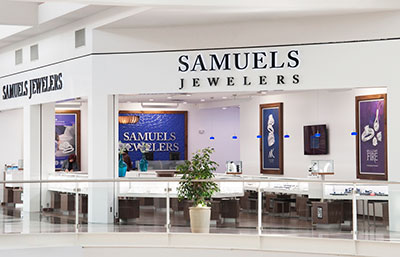
On Feb. 25, Samuels Jewelers, an Austin, Texas–based chain that dates back to 1891, closed all 112 of its stores, six months after filing for Chapter 11 protection. Management had hoped to keep the company alive in a scaled-down form comprising 60 or so stores. But in mid-February, leading lender Wells Fargo made a credit bid for the remaining assets, including Samuels’ intellectual property and web addresses.
“This effectively [killed] the transaction we were diligently pursuing,” said an internal memo. “This development was unexpected and tragic, but unfortunately it is our new reality.” In a filing, Wells Fargo said it “had hoped for a positive outcome” but maintained it had seen no bids that secured its claims.
Samuels was formerly known as Barry’s and did business under the names Samuels Diamonds, Rogers Jewelers, Andrews, and Schubach. Its history, while long, has also been troubled; this marks the retailer’s fourth trip to bankruptcy court.
 Gitanjali Group purchased the company in 2006. The following year, it scooped up Rogers and merged the two. While Gitanjali, based in Mumbai, India, provided Samuels with financial support and low-cost inventory, former executives complained its executives didn’t understand the U.S. market, sometimes saddling it with unsuitable product.
Gitanjali Group purchased the company in 2006. The following year, it scooped up Rogers and merged the two. While Gitanjali, based in Mumbai, India, provided Samuels with financial support and low-cost inventory, former executives complained its executives didn’t understand the U.S. market, sometimes saddling it with unsuitable product.
Last February, India’s Central Bureau of Investigation charged Gitanjali and its chairman, Mehul Choksi, with bank fraud, and the one-time giant jewelry retailer effectively ceased to exist. Samuels filed for bankruptcy that August, faced with skittish vendors and the loss of its main benefactor.
On Feb. 20, the court-appointed examiner, John Carney, filed a 134-page report charging that Choksi used Samuels to perpetuate his alleged fraud. The report found that one of the retailer’s top vendors was actually a Choksi shell company, with its listed address doubling as the office of the Michigan psychologist who was ostensibly its owner.
In a statement, Choksi called the examiner’s report “erroneous” and said he is innocent of all charges. “The real tragedy is not mine but rather is that Samuels, a successful company that had no connection to the allegations put forward in India, has been put out of business,” he said.
(Michael Berrell/iStock/Getty)